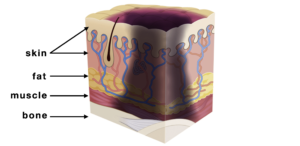Understaffing Sacramento Nursing Homes Leads to Bedsores
Effects of Understaffing Nursing Home: Elderly pressure sores result from physical elder neglect when residents are confined to beds or wheelchairs and don’t receive help in shifting position. Detecting early stages of bed sores is crucial because without proper treatment, these skin ulcers can lead to serious conditions like sepsis and death.
The relationship between understaffing and pressure ulcers, also known as bed sores, is a clear one. Pressure ulcers are a common problem at skilled nursing facilities in Sacramento and across the state of California. They are painful wounds that develop when a person’s skin and underlying tissues are compressed against a hard surface, such as a bed or chair, for an extended period of time.
Understaffing at a nursing home (skilled nursing facilities) can contribute to the development of pressure ulcers in several ways. One of the primary ways that understaffing can lead to pressure ulcers is by limiting the amount of time that staff members have to provide care and support to residents. When staff members are overworked and stretched thin, they may not be able to provide the level of individualized care that is needed to prevent pressure ulcers.
For example, staff members may not have enough time to reposition residents who are bedridden or wheelchair-bound, or to provide them with regular pressure-relieving interventions, such as turning them every two hours or providing specialized mattresses or cushions. When residents are not repositioned regularly, they are at increased risk of developing pressure ulcers.
Understaffing can also lead to a decline in the overall quality of care at skilled nursing facilities, which can contribute to the development of pressure ulcers. When there are not enough staff members to provide individualized attention and support, residents may not receive the level of care that they need and deserve. This can lead to a decline in their physical and mental health, and an overall decrease in their quality of life.
In addition to the negative effects on residents, understaffing can also affect the staff members who work at skilled nursing facilities. When there are not enough staff members, those who are working may be required to work longer hours and take on additional responsibilities, leading to increased stress and burnout. This can result in a high turnover rate among staff members, which can further exacerbate the problem of understaffing.
Overall, the relationship between understaffing and pressure ulcers is a clear one. Understaffing is not the only cause of pressure ulcers, it can contribute to their development and make it more difficult to prevent and treat them. It is important for skilled nursing facilities to ensure that they have adequate staffing levels to provide high-quality care to residents and support the well-being of their staff members.
If you think your loved one suffered neglect and developed a pressure ulcer because of understaffing, contact us.





Comments are closed.